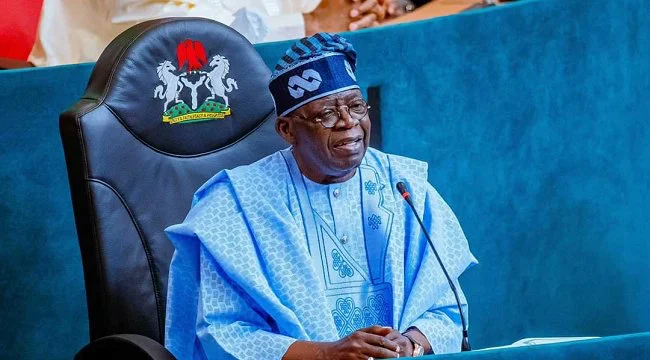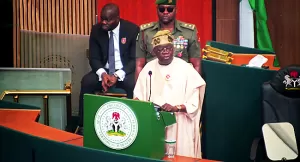President Tinubu Arrives in Benue State Amid Outrage Over Yelewata Killings

Makurdi, Benue State – On Wednesday, June 18, 2025, President Bola Ahmed Tinubu arrived in Benue State to address the escalating violence following the brutal killing of over 100 people in Yelewata, a community in Guma Local Government Area, over the weekend. The massacre, attributed to suspected criminal herders, has reignited national outrage over the persistent insecurity in Nigeria’s Middle Belt, particularly in Benue, often referred to as the “food basket of the nation.” The President’s visit, aimed at consoling victims’ families and engaging stakeholders, comes amid mixed reactions, with some residents and observers questioning the effectiveness of such interventions in curbing the violence.
A Gruesome Attack Sparks National Concern
The Yelewata killings, which occurred between June 13 and 15, 2025, saw armed assailants invade the community, slaughtering residents, destroying homes, and displacing hundreds. Reports indicate that men, women, and children were among the victims, with some bodies still unrecovered in the surrounding bushes. The attack is part of a long-standing cycle of violence in Benue, often linked to clashes between herders and farmers over land and resources. The scale of the tragedy prompted swift condemnation from local and international groups, with calls for immediate action to protect vulnerable communities.
President Tinubu, in a statement issued prior to his arrival, described the killings as “barbaric and unacceptable,” vowing that his administration would take decisive steps to end the bloodshed. “The perpetrators of this heinous act will face justice,” he said, while directing security agencies to intensify efforts to apprehend those responsible. However, as of June 18, no arrests have been reported, fueling skepticism among residents and commentators on platforms like X, where posts have criticized the government’s response as slow and inadequate.
Tinubu’s Visit and the Town Hall Meeting
Upon landing in Makurdi, the state capital, President Tinubu was received by Benue State Governor, Rev. Fr. Hyacinth Alia, alongside top government officials and traditional leaders. The President’s itinerary includes a town hall meeting with stakeholders, including community leaders, farmers, herders’ representatives, security agencies, and civil society organizations. The meeting aims to foster dialogue and identify lasting solutions to the recurring violence in the state.
Tinubu is also expected to visit affected communities in Yelewata to meet with victims’ families and assess the extent of the damage. The Presidency stated that the visit underscores the administration’s commitment to tackling insecurity and restoring peace in Benue and other troubled regions. Accompanying the President are key security chiefs, including the Inspector General of Police, the Chief of Defence Staff, and the Director-General of the Department of State Services, signaling a high-level response to the crisis.
Public Holiday Declaration Sparks Controversy
In preparation for the President’s visit, the Benue State government declared June 18, 2025, a public holiday to honor the occasion and ensure maximum participation in the town hall meeting. The decision, however, has drawn criticism from some quarters. Residents and commentators on X expressed dismay, arguing that a public holiday was insensitive given the scale of the tragedy. “People are mourning, and the government is declaring a holiday? This is tone-deaf,” one X user posted. Others questioned the timing of the visit, noting that it comes days after the attack, with no immediate relief or security reinforcements for the affected communities.
The state government defended the holiday, stating it was meant to facilitate widespread attendance at the town hall meeting and demonstrate solidarity with the President’s peace efforts. Governor Alia, in a statement, urged citizens to remain calm and cooperate with security agencies to restore normalcy.
Mixed Reactions and Calls for Action
While some residents welcomed Tinubu’s visit as a step toward addressing the crisis, others expressed frustration over what they perceive as a pattern of reactive, rather than proactive, government responses. Benue has been a flashpoint for herder-farmer conflicts for years, with thousands killed and displaced in similar attacks. The state’s anti-open grazing law, enacted in 2017, has been a point of contention, with some herders citing it as a trigger for reprisal attacks, while farmers argue it is necessary to protect their livelihoods.
Posts on X reflect a polarized sentiment. Some users praised Tinubu for showing leadership by visiting the state, with one writing, “At least he’s here to see the situation for himself. Let’s hope this translates to action.” Others were less optimistic, with comments like, “Another visit, another promise. When will we see results? No arrests, no justice, just more bloodshed.” The lack of arrests in connection with the Yelewata killings has been a recurring theme in public discourse, with many calling for a more robust security strategy.
A Broader Context of Insecurity
The Yelewata massacre is one of several violent incidents in Nigeria’s Middle Belt in 2025, highlighting the broader challenge of insecurity facing the Tinubu administration. From banditry in the northwest to insurgency in the northeast and separatist agitations in the southeast, the government is grappling with multiple fronts of violence. In Benue, the herder-farmer conflict is compounded by issues of land scarcity, climate change, and the proliferation of small arms, making resolution complex.
Analysts have urged the government to adopt a multi-pronged approach, including strengthening security presence in rural areas, addressing root causes like resource competition, and promoting inclusive dialogue between communities. The establishment of state police, a long-debated proposal, has also resurfaced as a potential solution to improve local security.
Looking Ahead
As President Tinubu engages with stakeholders in Benue, the nation watches closely for tangible outcomes. The town hall meeting is expected to produce a roadmap for peace, with proposals for enhanced security measures, community reconciliation, and economic support for displaced persons. However, for many in Yelewata and other affected communities, the priority is immediate justice and protection from further attacks.
The President’s visit, while symbolic, carries significant weight in a region weary of unfulfilled promises. Whether it will mark a turning point in Benue’s struggle with violence remains to be seen. For now, the people of Yelewata and Benue State mourn their losses, hoping for a future where peace, not bloodshed, defines their homeland.






